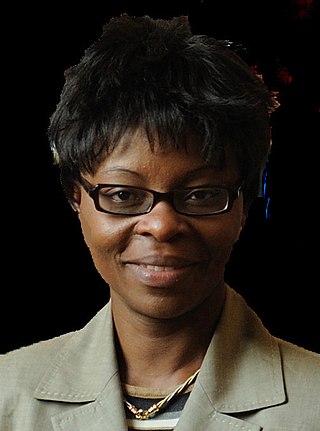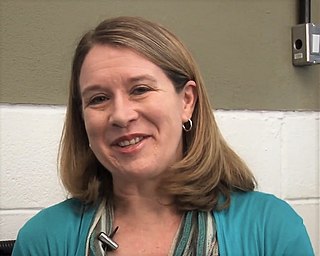
The University of KwaZulu-Natal is a university with five campuses in the province of KwaZulu-Natal in South Africa. It was formed on 1 January 2004 after the merger between the University of Natal and the University of Durban-Westville.

The University of Zululand or UniZulu is a comprehensive tertiary educational institution north of the Tugela River in KwaZulu-Natal, South Africa. The university has established partnerships with schools in the United States and Europe such as the University of Mississippi, Radford University, Florida Agricultural and Mechanical University and Chicago State University. UniZulu was founded with the help of the Prince of Phindangene, Mangosuthu Buthelezi, who was also chancellor of the institution when it was established.

Adam Mahomed Habib is a South African academic administrator serving as Director of the School of Oriental and African Studies, University of London since 1 January 2021. He served as Vice-Chancellor and Principal of the University of the Witwatersrand (Wits) in Johannesburg, South Africa, between 1 June 2013, when the term of his predecessor Loyiso Nongxa ended, and 1 January 2021. He is also a former deputy vice-chancellor of the University of Johannesburg.

Thalappil Pradeep is an institute professor and professor of chemistry in the Department of Chemistry at the Indian Institute of Technology Madras. He is also the Deepak Parekh Chair Professor. In 2020 he received the Padma Shri award for his distinguished work in the field of Science and Technology. He has received the Nikkei Asia Prize (2020), The World Academy of Sciences (TWAS) prize (2018), and the Shanti Swarup Bhatnagar Prize for Science and Technology in 2008 by Council of Scientific and Industrial Research.
Green nanotechnology refers to the use of nanotechnology to enhance the environmental sustainability of processes producing negative externalities. It also refers to the use of the products of nanotechnology to enhance sustainability. It includes making green nano-products and using nano-products in support of sustainability.
Patrick Bond is Distinguished Professor at the University of Johannesburg Department of Sociology, where he directs the Centre for Social Change. From 2020-21 he was professor at the University of the Western Cape School of Government and from 2015-19, distinguished professor of political economy at the University of the Witwatersrand Wits School of Governance. Before that, from 2004, he was senior professor at the University of KwaZulu-Natal, where he directed the Centre for Civil Society. His research interests include political economy, environment, social policy, and geopolitics.
Nanoremediation is the use of nanoparticles for environmental remediation. It is being explored to treat ground water, wastewater, soil, sediment, or other contaminated environmental materials. Nanoremediation is an emerging industry; by 2009, nanoremediation technologies had been documented in at least 44 cleanup sites around the world, predominantly in the United States. In Europe, nanoremediation is being investigated by the EC funded NanoRem Project. A report produced by the NanoRem consortium has identified around 70 nanoremediation projects worldwide at pilot or full scale. During nanoremediation, a nanoparticle agent must be brought into contact with the target contaminant under conditions that allow a detoxifying or immobilizing reaction. This process typically involves a pump-and-treat process or in situ application.
Tebello Nyokong is a South African chemist and distinguished professor at Rhodes University, and a recipient of South Africa's Order of Mapungubwe. Nyokong's work has been published around 450 times including a patent. She was awarded the South African Chemical Institute Gold Medal in 2012, and named one of the Top 10 Most Influential Women in Science and Technology in Africa by IT News Africa. She is currently researching photo-dynamic therapy, an alternative cancer treatment method to chemotherapy. In 2007, she was one of the top three publishing scientists in South Africa, and in 2013 she was awarded the National Research Foundation's Lifetime Achievement Award.

Omowunmi "Wunmi" A. Sadik is a Nigerian professor, chemist, and inventor working at New Jersey Institute of Technology. She has developed microelectrode biosensors for detection of drugs and explosives and is working on the development of technologies for recycling metal ions from waste, for use in environmental and industrial applications. In 2012, Sadik co-founded the non-profit Sustainable Nanotechnology Organization.
Valerie Mizrahi is a South African molecular biologist.
Jane Catherine Ngila is the head of the Chemical Sciences Department at the University of Johannesburg, her work focuses on applying nanotechnology for water purification. She is Acting Executive Director of the African Academy of Sciences and member of the Academy of Science of South Africa.
Miriam Adhikari is a physician and scientist specializing in paediatrics with a focus on neonatology. She is Emeritus Professor at the University of KwaZulu-Natal and a neonatologist at the Nelson Mandela School of Medicine. She also has a focus on paediatric nephrology and is a member of the Academy of Science of South Africa.
Anna Coutsoudis is a South African public health scientist and academic who has conducted research on HIV and nutrition, specializing in the benefits of breastfeeding. An elected member of the Academy of Science of South Africa, she is a founder member and chair of iThemba Lethu, an organization for children with HIV, which provides a community-based breast milk bank.
Roseanne Diab is a researcher, the Director of Gender in science, innovation, technology and engineering (SITE), a UNESCO's programme unit hosted by The World Academy of Sciences (TWAS) and former CEO of the Academy of Science of South Africa. She is Fellow of the University of KwaZulu-Natal and Emeritus Professor in the School of Environmental Sciences at the same university.
Priscilla Baker is a professor of analytical chemistry at the University of the Western Cape. She is the co-leader of SensorLab, a research platform in electrochemistry that deals with the electrodynamics of materials and sensors. She is an active member of the Academy of Science of South Africa, European Scientific Network for Artificial Muscles (ESNAM) and the Marie Curie International staff exchange scheme (IRSES).

Christy Lynn Haynes is a chemist at the University of Minnesota. She works at the interface of analytical, biological, and nanomaterials chemistry.
Janice Leigh Limson is a South African Professor of Biotechnology, former Chairperson the School of Biotechnology at Rhodes University and the SARChI Chair in Biotechnology Innovation & Engagement at Rhodes University. She is founder and editor-in-chief of the magazine Science in Africa, the first popular online science magazine for Africa. Her research focuses on topics ranging from the development of nanotechnology biosensors for cancer diagnostics, drug delivery, detection of pathogens in food to the design of fuel cell technology.
Alison Lewis is a South African chemical engineer known for her research in crystallisation and precipitation as applied to the recovery of valuable metals. She is Dean of the Faculty of Engineering and the Built Environment at the University of Cape Town (UCT) and is a member of UCT’s Senior Leadership Team. Lewis is also the founder and director of UCT’s Crystallisation and Precipitation Research Unit.
Deresh RamjugernathFAAS is a South African professor of Engineering Technology & Applied Sciences. He was a Deputy Vice-Chancellor of Research at the University of KwaZulu-Natal (UKZN) and the current Deputy Vice-Chancellor of Learning and Teaching at Stellenbosch University (SU).
Malik Maaza, also written as Mâaza, is a African physicist and UNESCO Chair in Nanosciences and Nanotechnology. He has made significant contributions to the field of physics, particularly in nanosciences and nanotechnology. Maaza has received several prestigious awards, including the Order of Mapungubwe and the Spirit of Abdus Salam Award, and recognition from the World Cultural Council for his contributions to education and research in physics.





